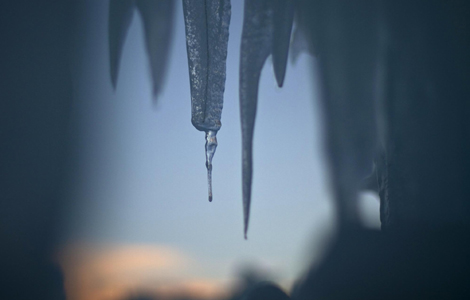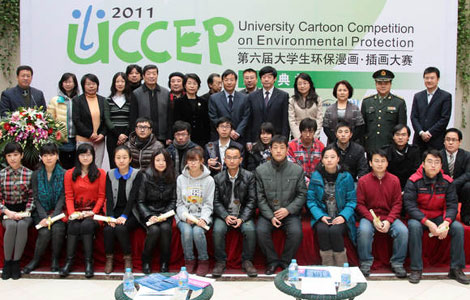Food safety campaign slashes dairy numbers
Updated: 2012-01-06 07:14
By Zhou Wenting (China Daily)
|
|||||||||||
BEIJING - The "tough battle" to clean up the food sector saw the closure of more than 40 percent of the mainland's dairies, Zhi Shuping, head of the country's top quality watchdog, said on Thursday.
"Food regulation supervisors looked into all the 1,176 dairy product manufacturers last year," Zhi, minister of the General Administration of Quality Supervision, Inspection and Quarantine, said at the 2012 national work conference on quality supervision.
"The licenses of 426 were revoked and another 107 were required to carry out improvements within a fixed period of time."
The number of cases transferred to the police doubled from the previous year, he said. "We fought a tough battle to rectify the dairy industry."
Wang Dingmian, chairman of the Guangzhou Dairy Association, said that there were nearly 2,000 domestic dairies in 2008 when the melamine-contaminated baby formula scandal exploded.
"It is really a good job that the authorities have closed unqualified dairies," Wang said.
Comprehensive checks have been carried out since last year on dairies and their products and supervision has been increased, Zhi said.
Tianjin introduced a pioneer procedure in 2011 where tests for melamine and other harmful substances were carried out by a municipal inspection agency. Raw milk also underwent extreme testing.
"This prevented at least 8 tons of suspicious raw milk from going to manufacturers," said Hou Binsheng, an official in charge of supervising food production in the city.
To tackle other problems regarding dairies, such as small-scale producers and shoddy management, city authorities implemented licensing controls at the beginning of last year.
"A mill must be non-residential," Hou said. "Warehouses should be at least 150 square meters in area and a food enterprise should be at least 100 meters away from sources of pollution."
In the city's Beichen district, 62 food manufacturers, including dairies, were closed and another 16 unlicensed workshops were shut last year. The figures, up to October, matched the number of cases from previous years, according to Sha Jie, who is in charge of food quality supervision in the district.
Sha said the leap in numbers was, at least partially, due to more supervisors.
"They went up from three to 14 last year. We're putting together a bureau to crack down on illegal practices in the food industry," she said.
Other regions are also taking measures.
In Guangdong province dairy representatives were invited to interviews with quality regulation agencies.
"It's desirable to keep two-way communication between watchdogs and businesses," Zhi said.
Authorities will conduct national campaigns to ensure dairy and food quality in 2012, he said.
"Milk, alcohol, meat products, food additives and organic food will be the main targets of our supervision," he said.
Authorities will also step up measures to axe substandard dairy businesses.
"We will improve access and we are determined to weed out unqualified businesses," he said.
- Bond issues up 52% in 2011 as market develops
- China Telecom to start UK service
- Officials weighing green benefits of carbon tax
- Net buyers required to register names, ID numbers
- Lifting consumption top priority for 2012
- Weak export hits 2011 trade surplus
- Yuan expected to rise more this year
- 'Time to diversify' crude sources









